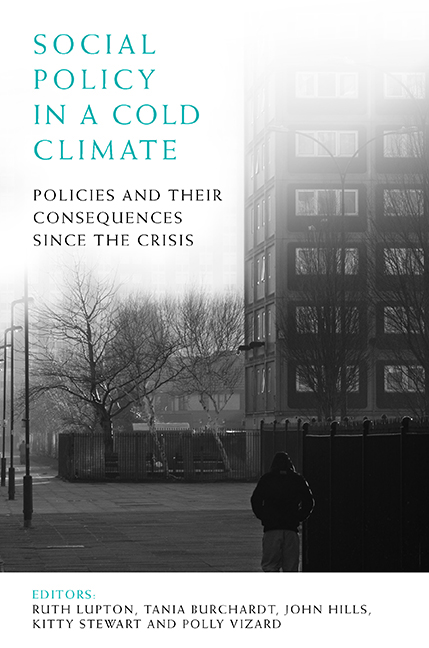One - Introduction
Published online by Cambridge University Press: 01 September 2022
Summary
In June 2007, when Gordon Brown took over from Tony Blair as Labour leader and Prime Minister of the UK, the climate for social policy-making in the UK was decidedly warm. The country was enjoying a sustained period of economic growth, the current budget deficit and public sector net debt were both lower than when Labour came to power, and the electorate was broadly supportive of the government's expansive social spending and the improved public services they had delivered.
Our own assessment of Labour's decade under Blair highlighted a complex and nuanced story, but one which indicated a shift towards a more equal society in several important respects (Hills et al, 2009). Inequality at the very top and the very bottom of the income distribution had continued to rise, as had absolute gaps in wealth and a range of measures of inequality in health outcomes. But there had been notable reductions in child and pensioner poverty, improvements in the relative position of disadvantaged neighbourhoods, narrowing gaps in educational achievement between children from lower-income families and others, and narrowing gaps in employment, education and incomes between some minority ethnic groups and the majority white population. The significant increases in the ‘social wage’ delivered through education and healthcare spending had had a substantial equalising effect. Looking at a range of official Opportunity for all indicators, trends had improved from 1997 compared to the decade before for nearly half of them, although they had deteriorated for a quarter. Where significant policy initiatives had been taken – and many were – we concluded that outcomes had generally moved in the right direction, if not always as rapidly as policy-makers and other observers might have hoped.
The period that followed, until the election of the Conservative government in May 2015, was an extraordinary one in British economic and political history. As has been well documented elsewhere, the global financial crisis that began to unfold in the summer of 2007 and culminated in the banking collapses and bailouts of autumn 2008 plunged the UK, like many other countries, into their worst recession since the 1930s, and punched a large hole in the public finances (see, for example, Gregg et al, 2014; Riley and Chote, 2014).
- Type
- Chapter
- Information
- Social Policy in a Cold ClimatePolicies and their Consequences since the Crisis, pp. 1 - 8Publisher: Bristol University PressPrint publication year: 2016

